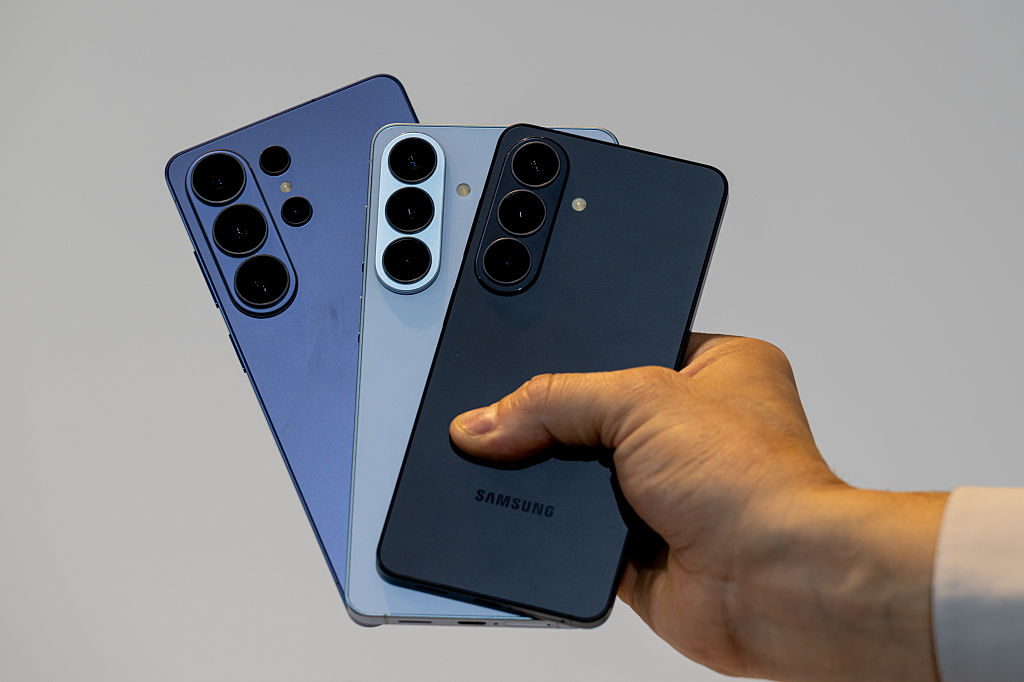Best One-Year CD Rates
Compare the best 1-year CD rates to grow your savings with a guaranteed return over the next 12 months.

Profit and prosper with the best of Kiplinger's advice on investing, taxes, retirement, personal finance and much more. Delivered daily. Enter your email in the box and click Sign Me Up.
You are now subscribed
Your newsletter sign-up was successful
Want to add more newsletters?
If you're looking for a safe place to store cash for short-term goals, certificates of deposit are worth considering. They offer guaranteed returns and FDIC insurance at most banks, making them a stable option for savings you won’t need right away.
Right now, 1-year CD rates can reach up to 4.00% APY, which allows your money to grow at a pace that keeps up with inflation without taking on market risk. Because the rate is fixed, you know exactly what you’ll earn over the term.
However, rates might not stay this high. While the Fed didn't cut rates at its January meeting, it might cut them later this year. As such, opening a CD now lets you lock in today’s higher APY before yields start to slide.
Here are some of the top 1-year CD rates
Account | APY | Min Deposit | Early Withdrawal Penalty |
|---|---|---|---|
4.00% | $1,000 | 3 months of interest | |
3.90% | $5,000 | 3 months of interest | |
3.85% | $500 | 3 months of interest | |
3.80% | $500 | 3 months of interest | |
3.75% | $1,000 | 3 months of interest |
Why open a 1-year CD?
A 1-year CD is ideal for saving money for short-term goals. I've used them in the past and found them to be successful in helping me achieve my goals.
Why? There are several reasons. One, I don't like losing money. CDs force you to keep your money in them unless you want to lose months of earned interest.
The second reason is that you gain quick access to your cash. This is useful if inflation climbs, as you can pivot to investments that will earn you more.
In the meantime, use the tool below, powered by Bankrate, to help you find some of the best 1-year CD rates quickly:
The difference depends on whether you open an account with a bank (overseen by the FDIC) or credit union (regulated by NCUA). If your bank or credit union faces any financial trouble or closes, your deposits will be insured up to $250,000 per account (and up to $250,000 per person in a joint account).
You can even use the FDIC BankFind tool to check whether a bank is federally insured.
Opening a CD is also a great option if you're looking for a guaranteed rate of return on your savings. While CDs offer comparatively lower returns compared with higher-risk investment options, such as stocks or ETFs, they're a good choice if you value a fixed, predictable and safe return on your money.
Pros and cons of 1-year CDs
Before deciding whether a 1-year CD is the right fit for your savings strategy, it’s helpful to weigh the advantages and drawbacks.
Pros:
- CDs offer a risk-free way to save with guaranteed returns on your deposit
- Fixed rates on CDs mean that even if interest rates fall, the APY on your account will remain the same
- Most CD accounts from banks and credit unions are federally insured for up to $250,000
- Since you should only withdraw funds when your CD account matures, you won't be tempted to spend your money elsewhere
Cons:
- Accessing funds from a CD account isn't as easy as with a savings account. If you need to withdraw funds from a CD account before the maturity date, you'll be charged a fee, which will likely offset any interest earned
- Money can't be added to a CD once it has been opened
- Fixed rates on CDs mean that if rates increase, you'll miss out on potential earnings
- CDs have a lower earnings potential compared with stocks or mutual funds
What's the best uses for a 1-year CD?
These CDs can help you reach your short-term goals, such as:
- Paying for a home improvement project
- Reallocating money to less risky investments as you move closer to retirement
- Saving for a home down payment
- Earmarking money for a vacation
While CDs won't help you earn as much as investments traditionally do, they still make sense in some instances. Having a fixed savings vehicle can help you stay on course to achieve your goals, without having to contend with market risk.
When a 1-year CD makes sense
Short-term CDs give you the best of both worlds: You'll earn a healthy rate of return, and you have the flexibility to take advantage of better investment opportunities soon.
Keep in mind CDs work best when viewed as a park-your-money-and-forget-it type of vehicle. If you need quick access to your cash, a high-yield savings account might be the better option.
Related content
Profit and prosper with the best of Kiplinger's advice on investing, taxes, retirement, personal finance and much more. Delivered daily. Enter your email in the box and click Sign Me Up.

Sean is a veteran personal finance writer, with over 10 years of experience. He's written finance guides on insurance, savings, travel and more for CNET, Bankrate and GOBankingRates.
-
 3 Smart Ways to Spend Your Retirement Tax Refund
3 Smart Ways to Spend Your Retirement Tax RefundRetirement Taxes With the new "senior bonus" hitting bank accounts this tax season, your retirement refund may be higher than usual. Here's how to reinvest those funds for a financially efficient 2026.
-
 5 Retirement Tax Traps to Watch in 2026
5 Retirement Tax Traps to Watch in 2026Retirement Even in retirement, some income sources can unexpectedly raise your federal and state tax bills. Here's how to avoid costly surprises.
-
 Trump's New Retirement Plan: What You Need to Know
Trump's New Retirement Plan: What You Need to KnowPresident Trump's State of the Union address touched upon several topics, including a new retirement plan for Americans. Here's how it might work.
-
 The Best Short-Term CD for Your Cash in 2026
The Best Short-Term CD for Your Cash in 2026This strategy can help you earn thousands in months.
-
 Thinking of Switching Phone Carriers? Do These 8 Things First
Thinking of Switching Phone Carriers? Do These 8 Things FirstSwitching carriers is easier than ever, but overlooking the fine print could cost you. Here’s what to check before you make the move.
-
 Samsung Galaxy S26 Ultra: What to Know Before You Upgrade
Samsung Galaxy S26 Ultra: What to Know Before You UpgradeThe Galaxy S26 Ultra brings new features and strong launch deals, but whether it’s worth upgrading depends on what you already own.
-
 What Is an Assumable Mortgage and Could It Save You Thousands?
What Is an Assumable Mortgage and Could It Save You Thousands?With mortgage rates still elevated, taking over a seller’s existing home loan could lower monthly payments — if the numbers work.
-
 Have You Fallen Into the High-Earning Trap? This Is How to Escape
Have You Fallen Into the High-Earning Trap? This Is How to EscapeHigh income is a gift, but it can pull you into higher spending, undisciplined investing and overreliance on future earnings. These actionable steps will help you escape the trap.
-
 I'm a Financial Adviser: These 3 Questions Can Help You Navigate a Noisy Year With Financial Clarity
I'm a Financial Adviser: These 3 Questions Can Help You Navigate a Noisy Year With Financial ClarityThe key is to resist focusing only on the markets. Instead, when making financial decisions, think about your values and what matters the most to you.
-
 Where Olympians Store Their Medals is a Great Lesson For Your Valuables and Cash
Where Olympians Store Their Medals is a Great Lesson For Your Valuables and CashWhat you can learn about protecting your cash and values from where Olympians store their medals.
-
 An Executive's 'Idiotic' Idea: Skip Safety Class and Commit a Federal Crime
An Executive's 'Idiotic' Idea: Skip Safety Class and Commit a Federal CrimeSeveral medical professionals reached out to say that one of their bosses suggested committing a crime to fulfill OSHA requirements. What's an employee to do?